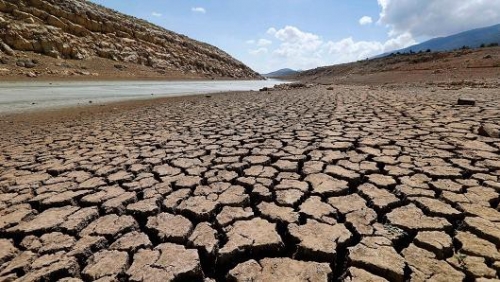Warning call as Bahrain faces acute water crisis
TDT | Manama
The Daily Tribune – www.newsofbahrain.com
Staff Reporter
Bahrain is among the 17 countries in the world facing extreme high water stress, according to a study by the World Resources Institute. Bahrain is ranked 12th in the list, which is topped by Qatar.
Kuwait is ranked seven and Saudi Arabia stands at eighth position, while the United Arab Emirates occupies the tenth place. Oman is ranked sixteenth, making all countries in the region finding a place in the extremely high baseline water stress list.
“It’s clear that even in countries with low overall water stress, communities may still be experiencing extremely stressed conditions,” the study said.
“For example, South Africa and the United States rank #48 and #71 on WRI’s list, respectively, yet the Western Cape (the state home to Cape Town) and New Mexico experience extremely high stress levels. The populations in these two states rival those of entire nations on the list of most water-stressed countries.”
The study highlighted that water stress is just one dimension of water security. “Like any challenge, its outlook depends on management. Even countries with relatively high water stress have effectively secured their water supplies through proper management.
“Saudi Arabia, ranked #8 for water stress, prices water to incentivise conservation. Its new Qatrah (droplet in Arabic) programme sets water conservation targets and aims to reduce water usage 43 per cent within the next decade.
“Namibia, one of the most arid countries in the world, has been turning sewage water into drinking water. And Australia nearly halved domestic water use to avert its own Day Zero moment during the Millennium Drought.
“The country’s water-trading scheme, the largest in the world, allows for smart allocation of water among users in the face of variable supplies.” The study suggests three mechanisms to address the crisis; increase in agricultural efficiency, invest in grey and green infrastructure apart from treating, reusing and recycling water.
“Farmers can use seeds that require less water and improve their irrigation techniques by using precision watering rather than flooding their fields. Financiers can provide capital for water productivity investments, while engineers can develop technologies that improve efficiency in agriculture.
“Many researches have shown that built infrastructure (like pipes and treatment plants) and green infrastructure (like wetlands and healthy watersheds) can work in tandem to tackle issues of both water supply and water quality.
Treating and reusing it creates a “new” water source. There are also useful resources in wastewater that can be harvested to help lower water treatment costs.”
Earlier, in an exclusive interview with The Daily Tribune, Prof Waleed Zubari, Coordinator, Water Resources Management Programme at Arabian Gulf University, said the sea level rise will have a negative impact on water resources management in the Kingdom.
“The rise in sea levels will lead to a potential increase in seawater intrusion to groundwater resources, leading to salinization. And this will certainly have an effect on human consumption. The higher desalination costs would burden the municipal sector.
As of now, the municipal water consumption is met mainly by desalinated water, which is energy intensive, and has environmental externalities,” Zubari said. Highlighting the impact of global warming on the existing water resources, Prof Zubari said: “In general, it will lead to increasing water demands, over-stretching the Kingdom’s limited water resources and increasing the associated costs of water provision.
“Moreover, the increase in temperature will lead also to more water consumption by plants, and farmers might adapt with strategies such as changing planting time and using plant varieties with a longer growing season, which in turn would lead to an increase in the overall stresses on water resources in the Kingdom.”
Related Posts

